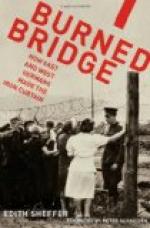He was not a stranger to cities, no rustic gazing open-mouthed at throngs and tall buildings. His native city of Toronto was a fair-sized place as American and Canadian cities go. But it was not a seaport. It was insular rather than cosmopolitan; it took its character from its locale rather than from a population gathered from the four quarters of the globe. San Francisco—is San Francisco—a melting-pot of peoples, blown through with airs from far countries, not wholly rid of the aura of Drake and the conquistadores of Spain even in these latter days of commercial expansion. And all of San Francisco’s greatness and color and wealth is crowded upon a peninsula, built upon rolling hills. What the city lacks of spaciousness is compensated by action. Life goes at a great pace.
It made a profound impression on Thompson, since he had reached the stage where he was keenly susceptible to external impressions from any source whatever. Those hurrying multitudes, that unending stir, the kaleidoscopic shifts of this human antheap made him at first profoundly lonely, immeasurably insignificant, just as the North had made him feel when he was new to it. But just as he had shaped himself to that environment, so he felt—as he had not at first felt in the North—that in time, with effort, he would become an integral part of this. Here the big game was played. It was the antithesis of the North inasmuch as all this activity had a purely human source and was therefore in some measure akin to himself. The barriers to be overcome and the problems to be solved were social and monetary. It was less a case of adapting himself by painful degrees to a hostile primitive environment than a forthright competitive struggle to make himself a master in this sort of environment.
How he should go about it he had no definite idea. He would have to be an opportunist, he foresaw. He had no illusions about his funds in hand being a prime lever to success. That four hundred dollars would not last forever, nor would it be replenished by any effort save his own. It afforded him a breathing spell, a chance to look about, to discover where and how he should begin at the task of proving himself upon the world.
He had no misgivings about making a living. He could always fall back on common labor. But a common laborer is socially of little worth, financially of still less value. Thompson had to make money—using the phrase in its commonly accepted sense. He subscribed to that doctrine, because he was beginning to see that in a world where purchasing power is the prime requisite a man without money is the slave of every untoward circumstance. Money loomed before Thompson as the key to freedom, decent surroundings, a chance to pursue knowledge, to so shape his life that he could lend a hand or a dollar to the less fortunate.




